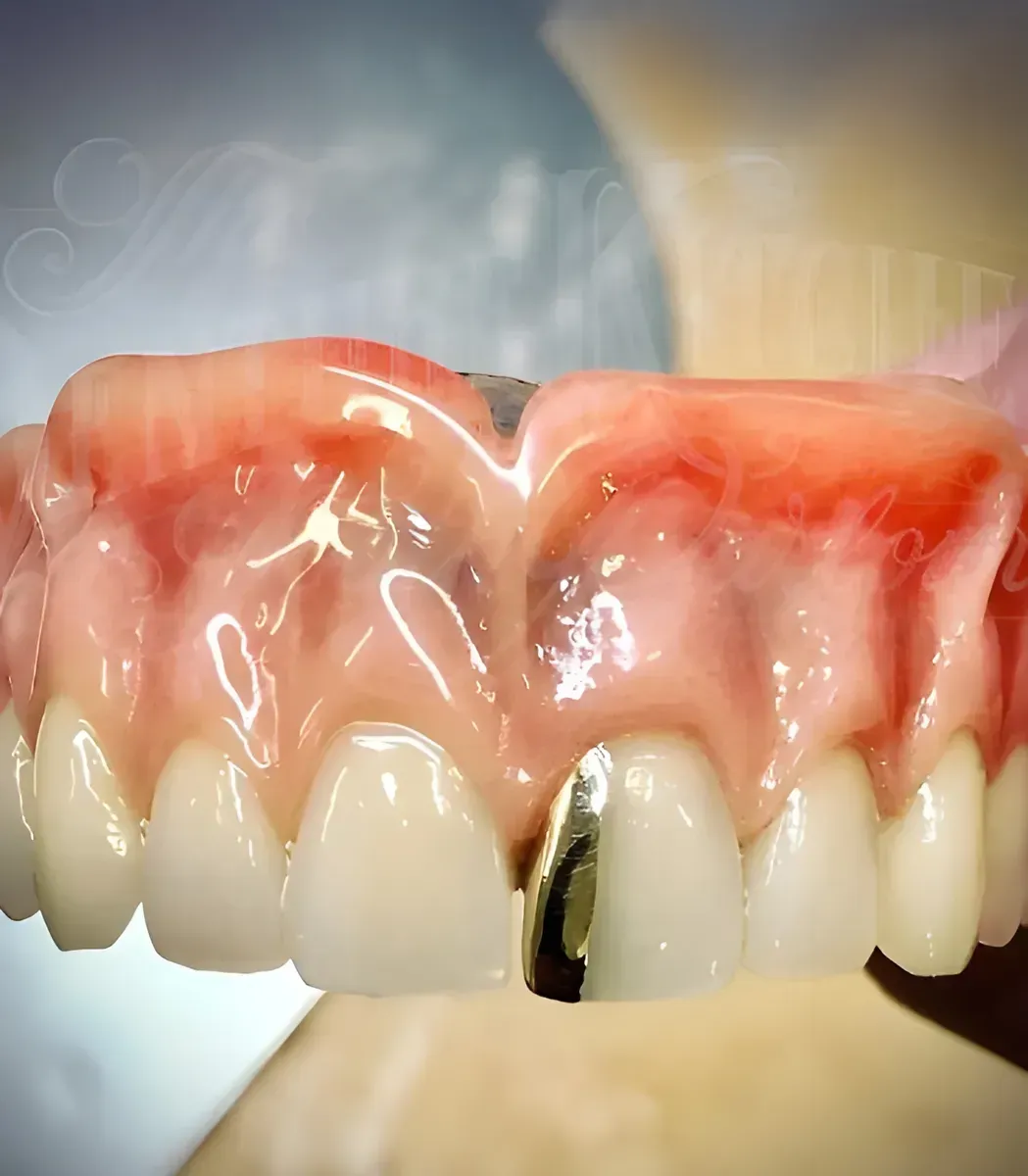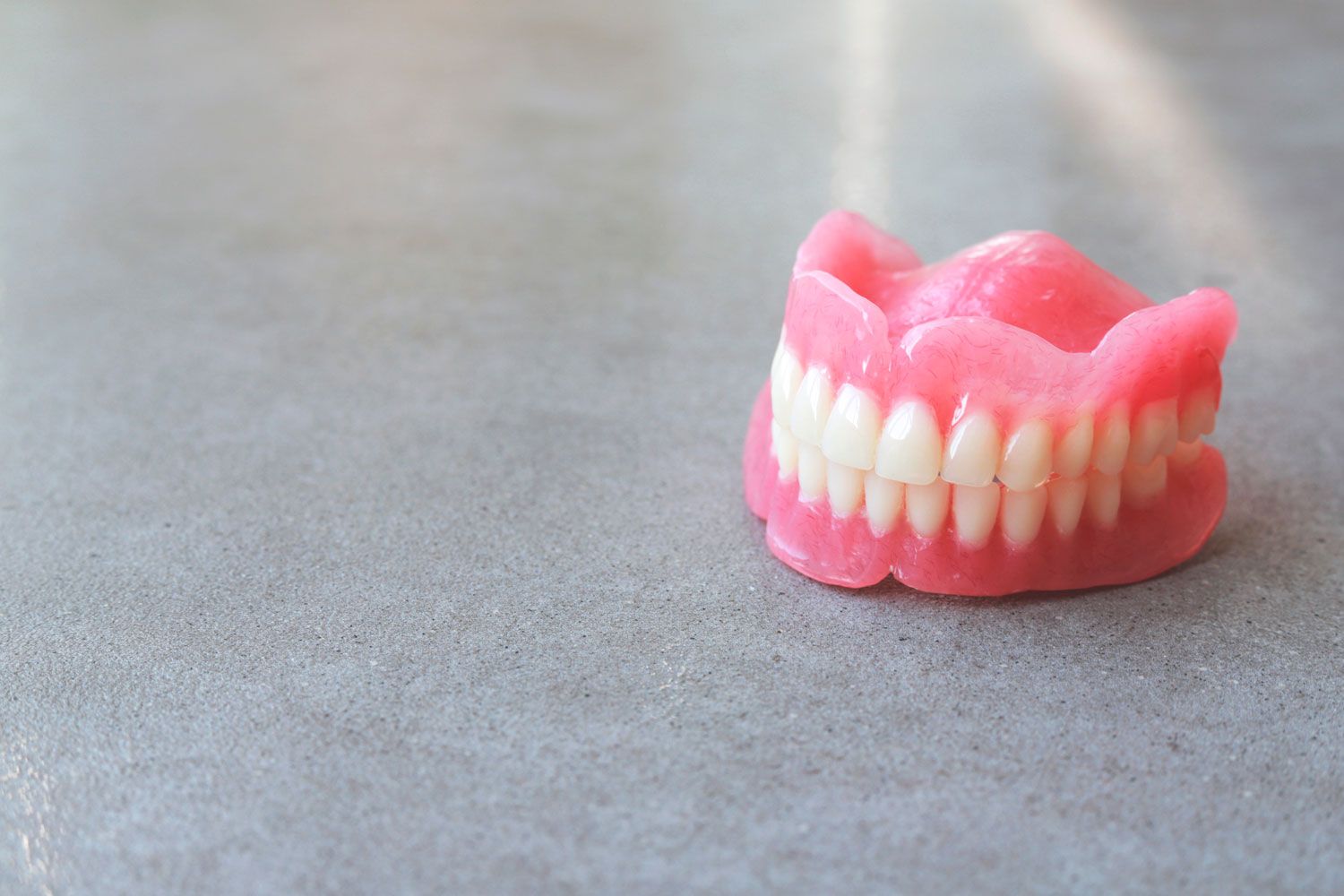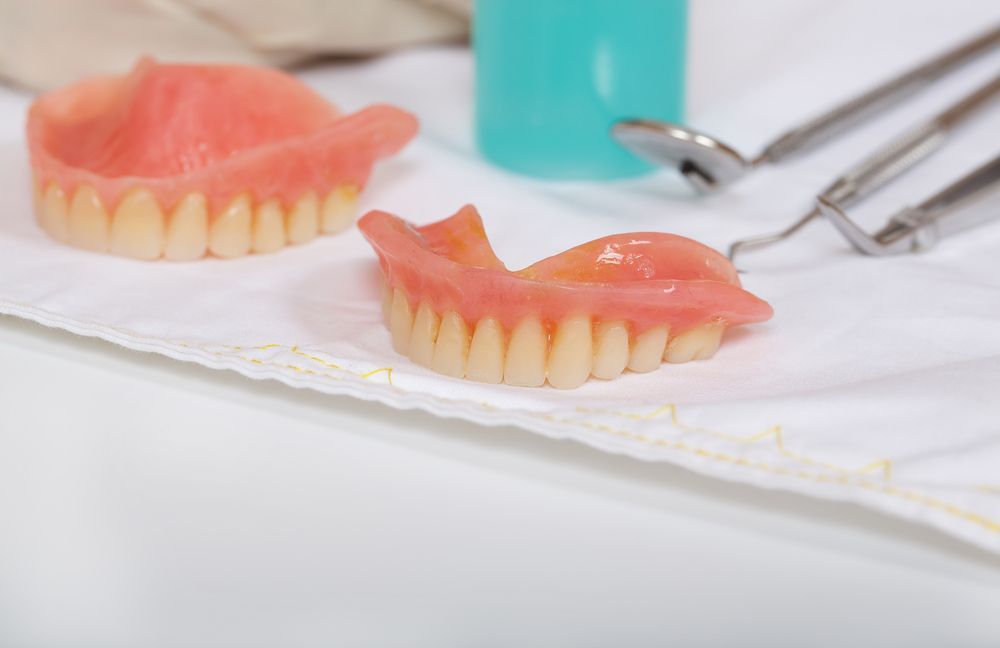7 Signs Your Dentures Need Repair (Before They Break)
Wearing dentures is a daily part of life for many adults and seniors, offering essential support for speaking, eating and overall confidence. But over time, wear and tear are inevitable. The challenge is knowing when a minor issue could soon become a major problem—because by the time a break occurs, it may already be too late for a quick fix. Identifying issues early on allows for faster, less disruptive solutions, often avoiding the need for a complete replacement. If you're noticing discomfort or changes with your dentures, here's what to look out for.
1. Hairline Cracks or Surface Fractures
Even small cracks in dentures can worsen quickly under daily stress.
Hairline fractures often go unnoticed at first. They may develop from dropping your dentures or simply from long-term use. While they might not cause immediate discomfort, they compromise the structure of the denture and can eventually lead to breakage.
What to look out for:
- Fine lines across the base of the teeth
- A subtle 'click' when chewing
- Rough patches that weren't there before
These cracks often signal the beginning of material fatigue. It's best to book an inspection before these seemingly small issues become full-blown issues.
2. Dentures That Feel Loose or Shift in the Mouth
If your dentures no longer fit snugly, it could mean changes in your gums or wear in the denture base.
Over time, natural changes in your mouth—such as gum shrinkage—can cause dentures to loosen. This can lead to slippage when speaking or eating, or even minor injuries from rubbing.
Signs to watch for:
- Dentures that move when you talk
- Needing to use adhesive more often
- Frequent biting of your cheek or tongue
Loose dentures should not be ignored, as they can affect your quality of life and may eventually crack under uneven pressure.
3. Sore Spots or Irritation on the Gums
Persistent irritation may mean your dentures are no longer aligned with the shape of your mouth.
Discomfort is a common early sign that your dentures aren't sitting right. This might result from shifting in the mouth, cracked edges, or uneven pressure on your gums.
Symptoms may include:
- Red or swollen areas under the denture
- Pressure pain after a few hours of wear
- Ulcers or broken skin on the gums
Timely repairs or relines can often resolve these issues before they develop into painful oral health conditions.
4. Clicking Sounds When Speaking or Eating
Unusual noises can signal looseness, warping, or misalignment.
If your dentures are clicking when you're eating or talking, it's not just annoying—it could be a sign of structural issues. Even a subtle change in shape or alignment can affect function and comfort.
You may also notice:
- A shift in how your upper and lower teeth meet
- Needing to adjust your bite more often
- Difficulty pronouncing certain words clearly
Catching these changes early helps avoid further warping or unexpected breakage.
5. Trapped Food or Poor Denture Hygiene
An increase in food getting stuck can suggest the denture fit is compromised.
Well-fitting dentures should sit flush against the gums. If they begin to trap food, it can mean the shape has changed, leading to pockets where debris collects. This can cause bad breath, discomfort, and increased risk of oral infection.
Things to notice:
- Needing to rinse more frequently
- Persistent bad taste or breath
- Visible buildup even after cleaning
Adjustments or repairs can help restore the original fit and prevent hygiene issues from escalating.
6. Discolouration or Surface Wear
Fading or surface changes can indicate that your dentures are deteriorating.
Over time, the surface of your dentures may lose its shine or start to appear stained. While this is partly cosmetic, it can also indicate material weakening that may precede cracking or discomfort.
You might notice:
- Yellowing even after regular cleaning
- A chalky, dull appearance
- Small pitted areas or rough patches
This is a good time to consider a denture polish or assessment, especially if it’s been more than a year since your last check-up.
7. Broken Clasps on Partial Dentures
If a clasp snaps or bends, the denture may not stay securely in place.
For partial denture wearers, clasps play a crucial role in stabilisation. When they break or lose their shape, the entire fit of the denture can be affected, leading to discomfort, speech issues, or even damage to surrounding teeth.
Watch for:
- A loose feeling on one side of the mouth
- Clasps that look bent or are missing
- Difficulty keeping your denture in place without adhesive
Prompt repair or replacement of clasps can help restore the function and comfort of your partial denture.
What to Do Next if You Notice an Issue
Spotting any of these signs doesn’t mean you’re facing an emergency, but it is a clear signal that your denture needs a professional review. Acting early can help:
- Avoid sudden breakage
- Preserve your denture’s lifespan
- Prevent gum irritation or damage
Even if you're unsure whether your concern warrants a repair, it's worth getting a professional opinion. Many issues can be resolved in a same-day appointment, offering fast peace of mind.
What to Expect from Same-Day Denture Repairs
Many repairs, such as fixing minor cracks or relining a loose-fitting denture, can often be completed the same day—sometimes within a few hours.
When you book a same-day denture repair appointment, you can generally expect:
- A quick visual inspection and consultation
- Advice on whether the denture can be repaired or needs a relining
- Minimal disruption—often you’ll only be without your denture for part of the day
For
partial dentures with broken clasps, simple repairs may be possible on-site. However, if the damage is extensive or you’ve had your denture for many years, you may be advised to consider a replacement.
FAQs About Denture Repairs on the Sunshine Coast
How often should I have my dentures checked?
At least once every 12 months is recommended, even if nothing feels wrong.
Can I keep wearing dentures that feel slightly loose?
It's not ideal. Loose dentures may cause gum damage or crack unexpectedly.
Are repairs always possible, or will I need a new denture?
Most issues can be repaired if caught early. Replacement is usually the last option.
Is it worth getting a minor crack checked right away?
Yes—early repair is quicker, less expensive, and can prevent complete breakage.
Wearing dentures is a daily part of life for many adults and seniors, offering essential support for speaking, eating and overall confidence. But over time, wear and tear are inevitable. The challenge is knowing when a minor issue could soon become a major problem—because by the time a break occurs, it may already be too late for a quick fix. Identifying issues early on allows for faster, less disruptive solutions, often avoiding the need for a complete replacement. If you're noticing discomfort or changes with your dentures, here's what to look out for.
Think You’ve Spotted a Crack?
At
The Denture Kitchen, we provide
denture repairs on the Sunshine Coast with a local, preventative-first approach. Whether it’s a small surface crack or a loose partial clasp, we’ll assess the issue and advise on the next steps. Our denture clinic on the Sunshine Coast offers timely care to help you avoid disruptions to your daily life. Call
(07) 5309 6353 for same-day repairs.










